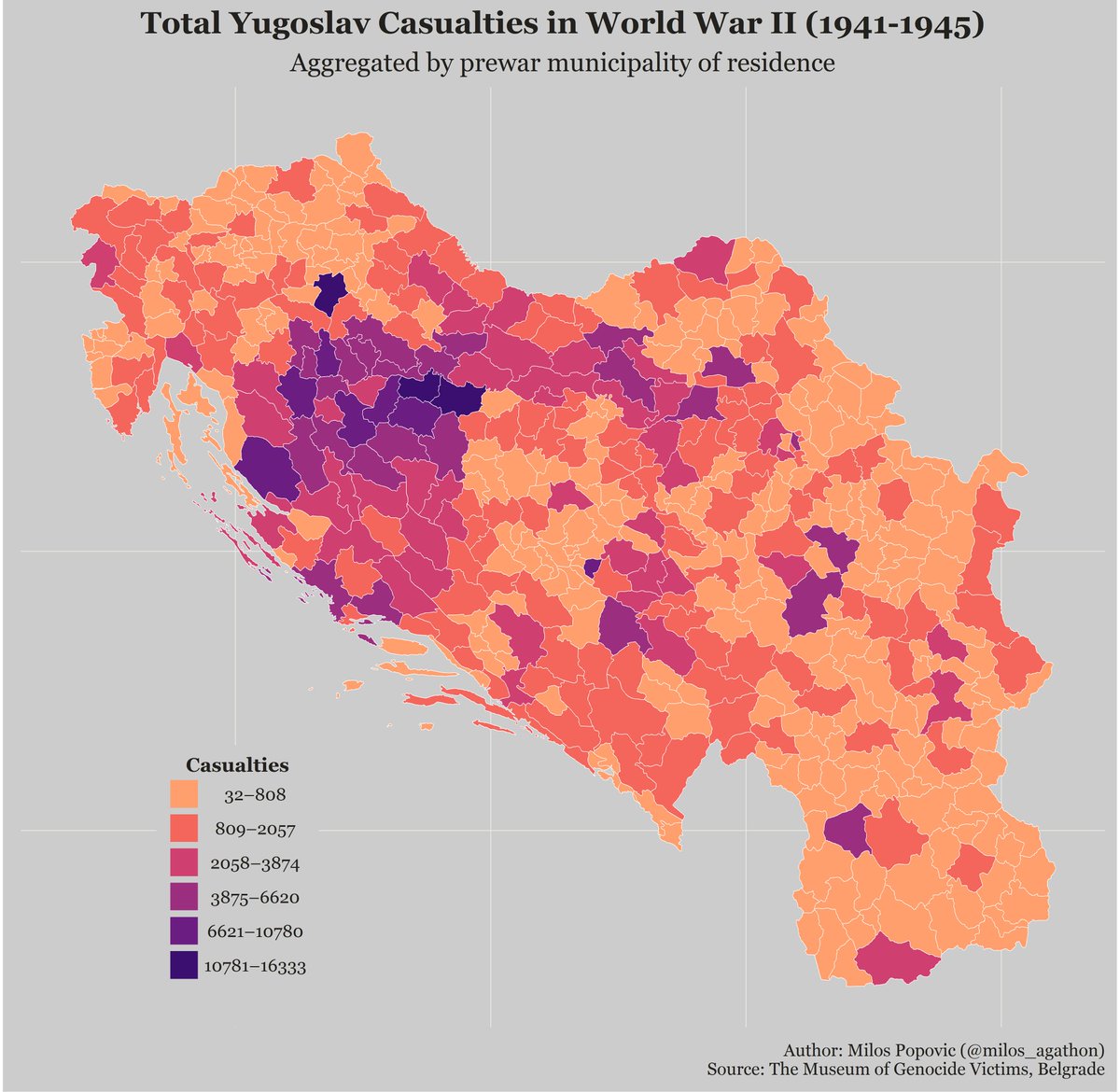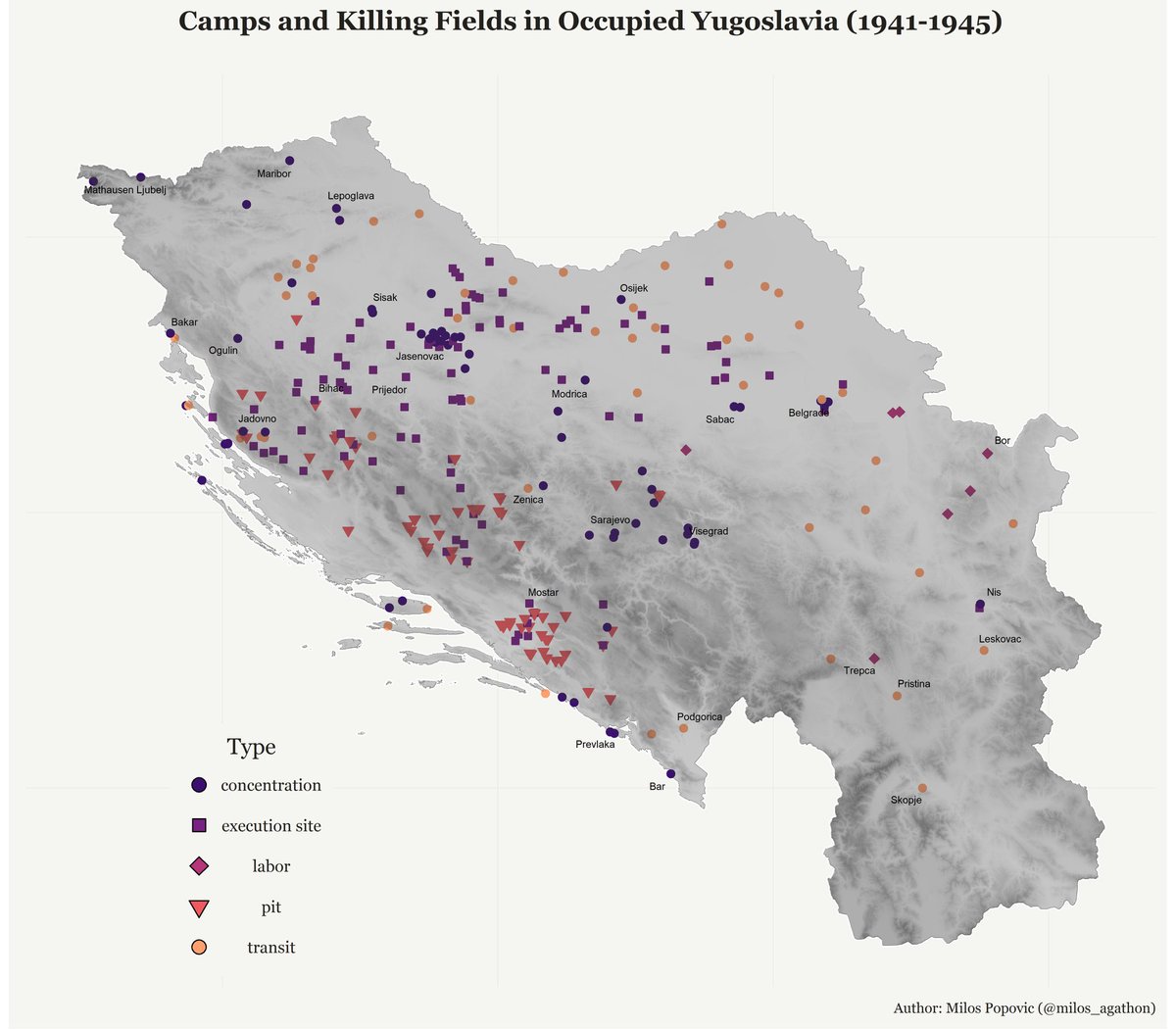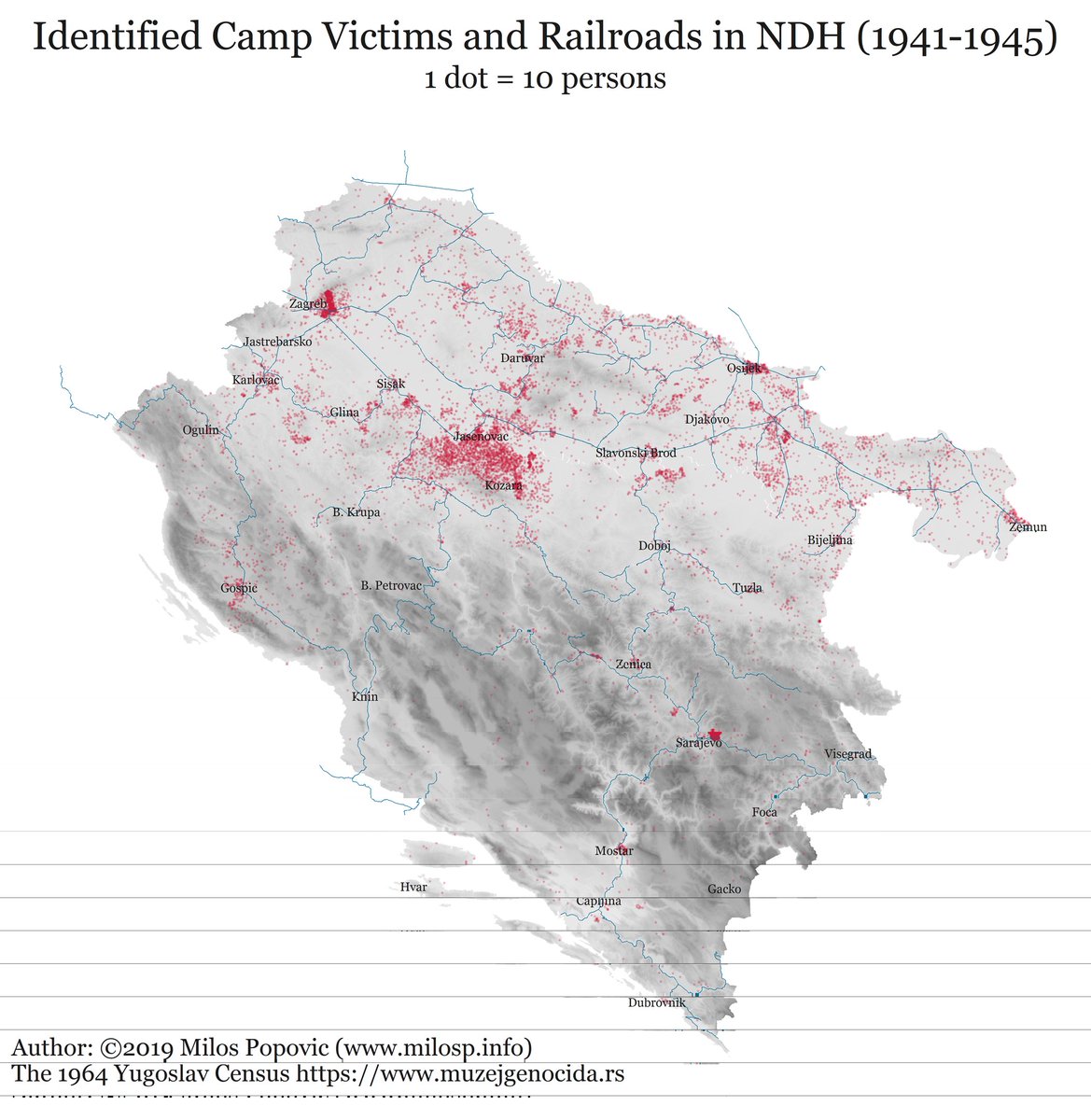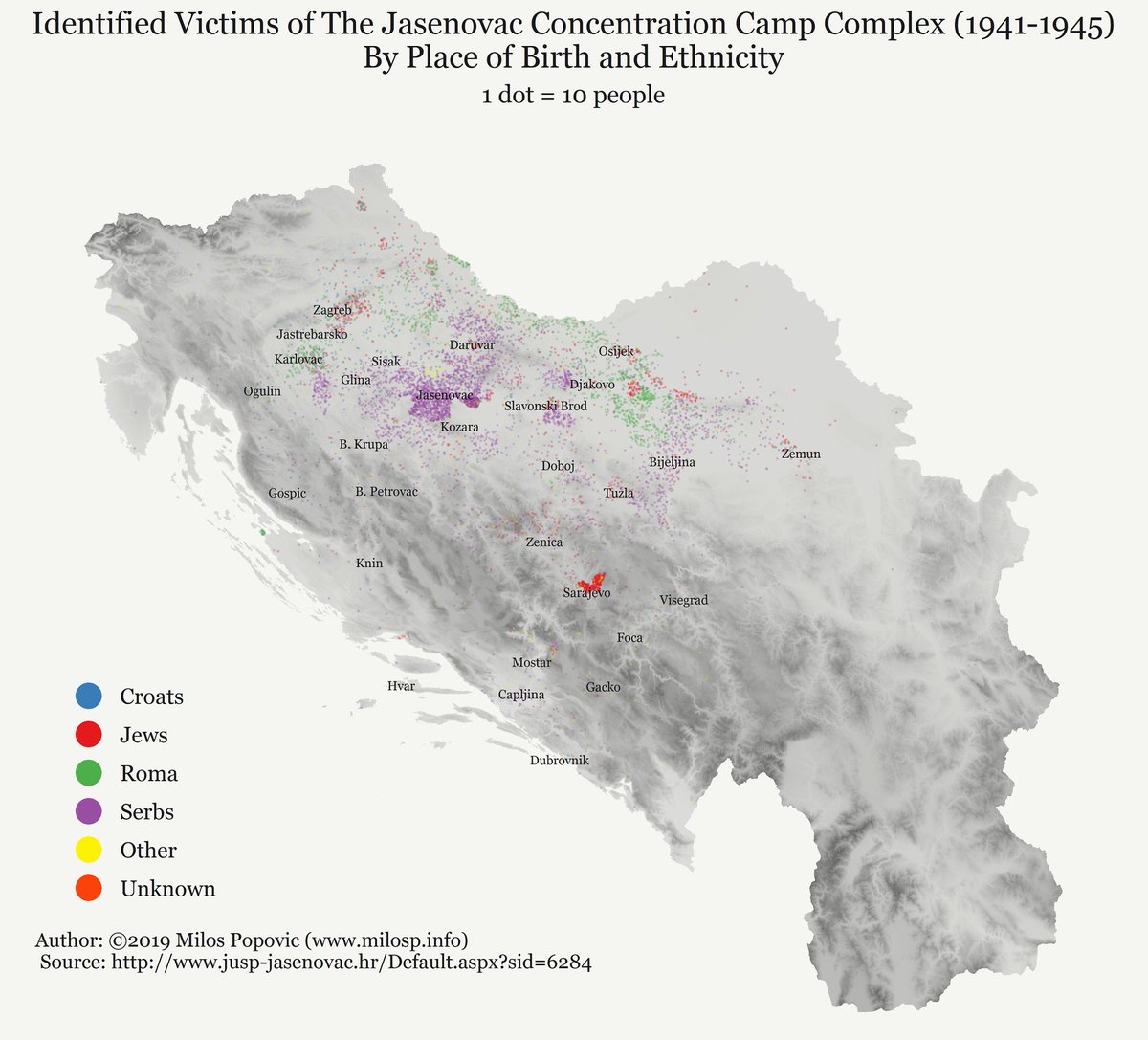Interesting and exhaustive paper - though I wonder how on earth ww2 collaborators' names (such as Vilko, Salko, Eduard, Artur, Ladislav) from late 19th ct were chosen over typical Croat nationalist names (Hrvoje, Zvonimir, Kresimir etc.) as an indicator for 1960s-90s nationalism https://twitter.com/kfzimmermann/status/1294177701830496256
esp. as being born in a "siege settlement" (later on the battlefront/occupied) seemed to be far more salient predictor of war-time behavior. Also, in rural & traditional places names are v. often passed from granddad w/o exception. Controlling for this would've been interesting.
I am struggling to understand this: did Korenica etc. have a 4x higher share of babies with Serb names in 1995-2000 than during the war? & 2x than in 1985-90? Despite the exodus in '95? Do we even have data on war births for breakaway territories? Or is this WW2?
one of the initial hypotheses - that WW2 con. camps were located "in ustaša strongholds" - would've been easily refuted with any history reading. They were located where convenient (rail connection, empty ind. buildings, proximity to persecuted population)
on a minor note, it's puzzling to see a paper with a co-author from Croatia referring to Croatian Serbs as "Serbian" and using a wrong demonym (Serbian) instead of an ethnonym (Serb)

 Read on Twitter
Read on Twitter






